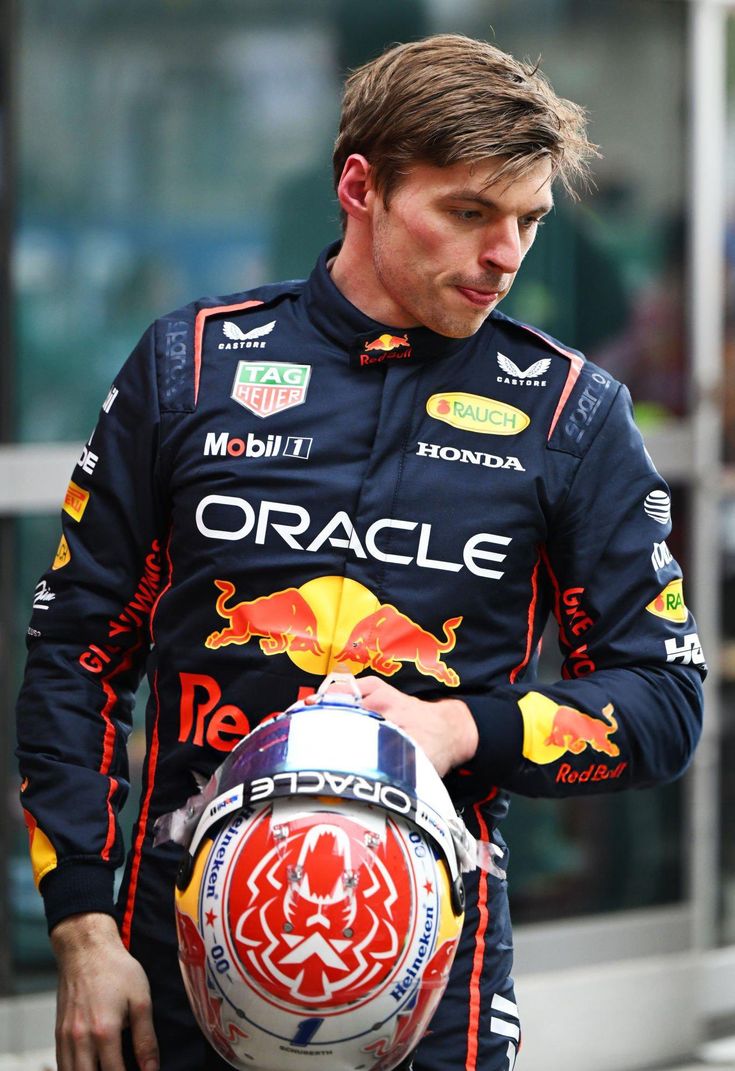Introduction: A New Chapter in F1’s Emotional Rollercoaster

Formula 1 is no stranger to drama, but the 2025 Spanish Grand Prix delivered tension that even seasoned fans didn’t expect. At the heart of it? A dramatic race restart that triggered a fiery radio outburst from three-time world champion Max Verstappen. Surprisingly, it was Ferrari star Charles Leclerc—often viewed as one of the grid’s cooler heads—who stepped in to empathize with Verstappen’s frustration, offering an unexpected show of unity in an increasingly competitive F1 landscape.
In this blog, we break down what exactly happened at the Spanish Grand Prix restart, why Verstappen lashed out, how Charles Leclerc responded, and what this means for Formula 1’s fast-evolving dynamics—on and off the track.
Let’s unpack the controversy that’s sparking headlines, splitting fans, and reigniting the debate over modern F1’s rules, regulations, and race management.
What Happened at the Spanish Grand Prix Restart?
The restart controversy took place during the final third of the race following a late Virtual Safety Car (VSC) phase. The tension arose due to inconsistent communication from Race Control, which appeared to cause confusion among the drivers, especially at the front of the grid.
Max Verstappen, leading the race, found himself caught off guard by what he described as a ‘late and dangerous’ restart signal. The Dutchman immediately made his dissatisfaction clear over team radio—calling the situation “ridiculous” and “unprofessional.”
According to Verstappen, “The lights went out and I had no idea we were going that lap. No countdown, nothing. It’s unacceptable at this level.”
Charles Leclerc Steps In: Empathy in the Heat of Competition
While Verstappen’s comments stirred division, Charles Leclerc took a different stance, speaking to media shortly after the race to defend Verstappen’s reaction.
“I completely understand Max’s frustration. When things happen this fast and communication isn’t clear, it’s dangerous for everyone,” Leclerc told reporters. “I was surprised too. It’s not about complaining—it’s about ensuring safety.”
His words resonated deeply with fans and fellow drivers, many of whom praised Leclerc for acknowledging a shared issue despite being in direct competition with Verstappen.
Why Did Verstappen’s Reaction Spark Such Controversy?
F1 fans are used to hearing emotional team radios, but this one struck a chord. Here’s why:
- Public Dissent: Verstappen openly questioned FIA race procedures, which reignites old wounds from previous controversial rulings—most notably the 2021 Abu Dhabi finale.
- Blunt Language: The “ridiculous” and “unacceptable” tags carried a weight that bordered on public criticism of race officials.
- Championship Implications: With Verstappen battling Leclerc and others closely this season, every point—and decision—counts. Frustrations are amplified.
How Did the FIA Respond to the Restart Criticism?
The FIA released a brief statement, asserting that all restart protocols were followed and that “teams were informed in accordance with Article 39.13 of the Sporting Regulations.”
Still, this hasn’t calmed the storm. Teams, drivers, and fans have called for greater transparency, asking for a review of restart communication procedures.
Frequently Asked Questions (FAQs)
1. Was Verstappen right to criticize the restart?
From a driver’s perspective, yes. Several drivers, including Leclerc and Lando Norris, admitted that the timing of the restart was unclear and abrupt. In high-speed scenarios, milliseconds matter.
2. Why is Leclerc’s support significant?
Leclerc and Verstappen have had tense rivalries, especially during the 2022 and 2023 seasons. Leclerc’s public empathy demonstrates a rare moment of solidarity over safety and may influence how fans and officials view driver feedback.
3. Will the FIA make changes following this incident?
Possibly. While the FIA hasn’t admitted fault, media pressure and growing driver concerns often push for procedural updates. Expect internal reviews—if not public ones.
4. How did this incident affect the race results?
Despite the restart confusion, Verstappen held on to win the race, with Leclerc finishing on the podium. However, post-race interviews focused more on the controversy than the standings.
Stats & Figures: Why Restart Rules Matter More Than Ever
- Average reaction time for F1 drivers: ~0.2 seconds
- Restart-related incidents in last 3 seasons: 6 notable controversies (Italy 2020, Azerbaijan 2021, Australia 2023, Spain 2025, etc.)
- Drivers demanding clearer FIA communication: At least 8 voiced concern post-race in Spain
- Fan engagement spikes during controversial races: 38% increase in Twitter activity (according to Motorsport Stats)
These numbers illustrate the urgency and impact of clear race management, not just for driver safety but also for F1’s global reputation.
Power Moves: What Can F1 Learn From This?
- Clarity is Key: Restart procedures must be communicated consistently across all teams and drivers.
- Involve Drivers in Rule Reviews: Create a Driver Advisory Panel to collaborate with FIA on race protocol reviews.
- Real-Time Communication Improvements: Upgrade messaging systems to offer clearer countdowns and alerts directly to the cockpit.
- Encourage Constructive Feedback: The sport must welcome driver feedback without penalizing emotional, yet justified, responses.
Emotional Reactions vs. Professional Expectations
It’s easy to label Verstappen’s outburst as emotional, but within the context of high-speed racing and split-second decisions, emotions are part of the game. Leclerc’s response proves that empathy and professionalism can co-exist, even under immense pressure.
This incident isn’t about one driver being “too vocal”—it’s about improving a system that affects the safety and performance of 20 elite athletes.
The Fan Divide: Are Emotions Helping or Hurting F1?
Social media exploded with opinions. Some believe Verstappen’s fiery nature hurts his brand, while others argue it’s authenticity that keeps the sport engaging.
Poll results from a post-race survey conducted by F1 Pulse:
- 54% of fans supported Verstappen’s right to speak out
- 31% felt he should have toned it down
- 15% remained neutral but agreed that restart procedures need clarity
This shows the sport is more polarized than ever, but also more passion-driven, which keeps fans coming back.
What’s Next for Leclerc, Verstappen, and the FIA?
The Austrian Grand Prix is just around the corner, and all eyes will be on how the FIA handles restarts moving forward. Verstappen may face media pressure, but with Leclerc’s backing, the conversation has shifted from complaint to constructive criticism.
Meanwhile, Leclerc continues to prove he’s not just a top driver but a diplomatic leader—something Ferrari may need as they chase Red Bull in the Constructors’ race.
Conclusion: A Defining Moment for F1’s Future
The 2025 Spanish Grand Prix restart wasn’t just another radio rant—it became a litmus test for leadership, empathy, and accountability in modern Formula 1. Max Verstappen’s emotional reaction was understandable, and Charles Leclerc’s defense gave it credibility.
If F1 wants to continue evolving while keeping its competitive fire alive, moments like these must lead to policy improvements, better communication, and above all—mutual respect among rivals.
In a sport where milliseconds decide careers, every word, every restart, and every emotion matters.


